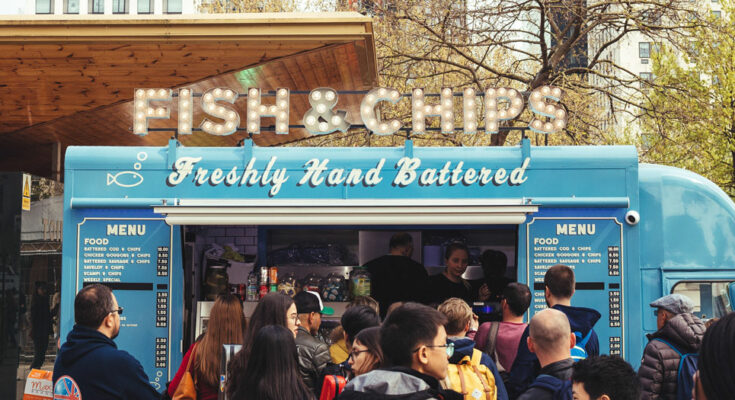Food trucks are so popular that some cities are famous for their streetside vendors. Before starting your own food truck, consider these tips to guide your decision.
1. Research Your Food Truck Scene
First, do your research. Gather information on population demographics and rival food trucks and restaurants. Choose locations that are busy at certain times of the day to attract more customers.
2. Choose a Concept
Your food truck must appeal to your potential customers and reflect your passions and the community’s interests.
The name and logo of the food truck should be unique, memorable, descriptive, and attention-grabbing.
3. Write a Business Plan
You will need a detailed plan before you invest time, effort, and money into the business. Potential investors will also review your plan, so it needs to be comprehensive, convincing, and correct.
4. Secure Funding
You will likely need outside funding, such as a bank loan, private investors, or Small Business Administration microloans.
5. Get Licenses and Permits
You must call the local governments, Health Department, and Department of Motor Vehicles to determine what permits and licenses are needed to operate in your chosen location.
6. Buy or Lease?
The food truck is your highest cost, so be sure it meets all your needs.
Decide if you will lease or purchase a new or used truck and if you will customize it for your business.
Buy insurance to cover any damage to your vehicle and liability for damages to others.
7. Equipment and Supplies
Have your truck properly equipped and supplied, so you can cook the food and operate the business smoothly.
You will need cooking appliances, warming/holding equipment, food prep equipment, refrigeration equipment, serving supplies, and cleaning supplies.
8. Choose a POS System
A mobile point-of-sale (POS) system allows you to take credit card payments but may need internet access. Many food trucks are a cash-only business, but this means losing customers who do not carry cash.
However, this mobile solution allows customers to order and pay by phone.
9. Marketing and Advertising
Marketing your food truck is very important. In addition to using the truck to advertise the business, consider a website and using social media to reach customers.
Operating a “lunchroom on wheels” can be tough, but using these tips as a guide could lead to delicious success.



